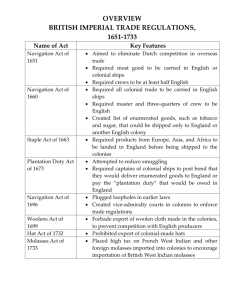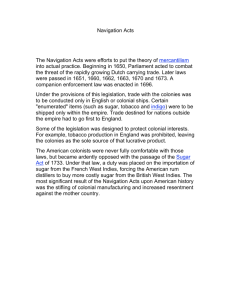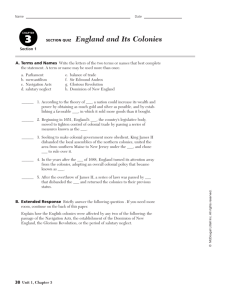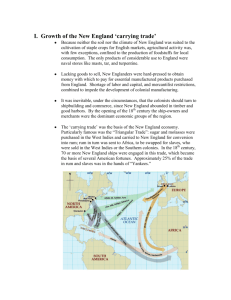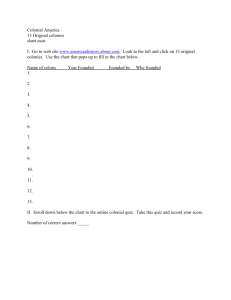Navigation Acts 1621 Virginia tobacco can be sold only in England
advertisement
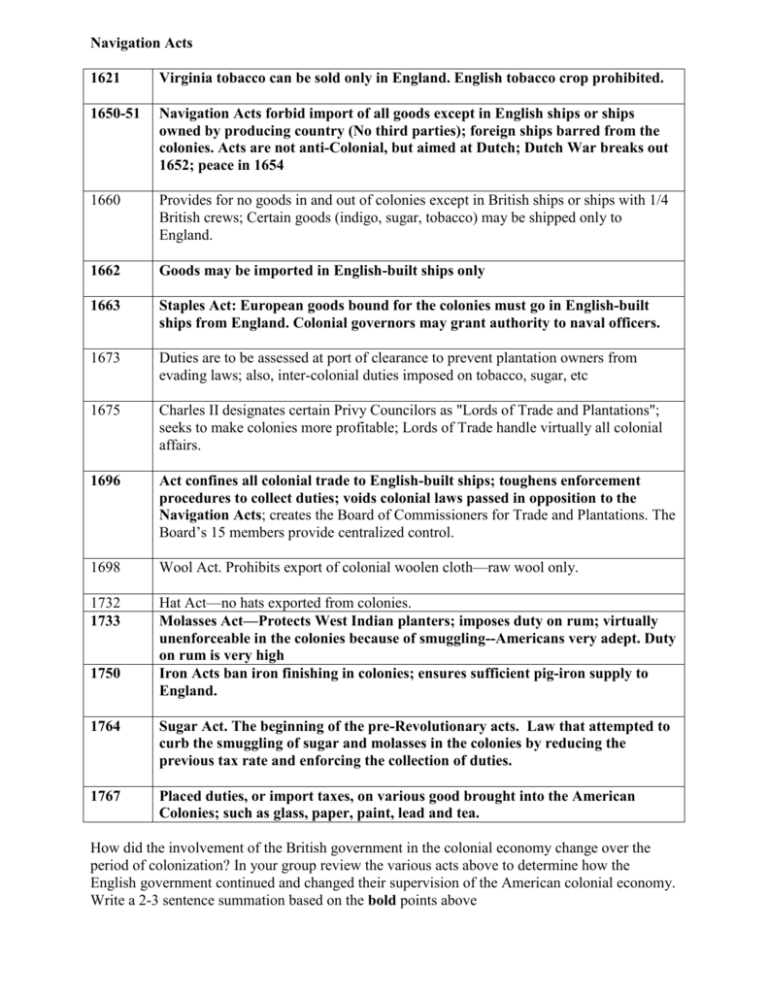
Navigation Acts 1621 Virginia tobacco can be sold only in England. English tobacco crop prohibited. 1650-51 Navigation Acts forbid import of all goods except in English ships or ships owned by producing country (No third parties); foreign ships barred from the colonies. Acts are not anti-Colonial, but aimed at Dutch; Dutch War breaks out 1652; peace in 1654 1660 Provides for no goods in and out of colonies except in British ships or ships with 1/4 British crews; Certain goods (indigo, sugar, tobacco) may be shipped only to England. 1662 Goods may be imported in English-built ships only 1663 Staples Act: European goods bound for the colonies must go in English-built ships from England. Colonial governors may grant authority to naval officers. 1673 Duties are to be assessed at port of clearance to prevent plantation owners from evading laws; also, inter-colonial duties imposed on tobacco, sugar, etc 1675 Charles II designates certain Privy Councilors as "Lords of Trade and Plantations"; seeks to make colonies more profitable; Lords of Trade handle virtually all colonial affairs. 1696 Act confines all colonial trade to English-built ships; toughens enforcement procedures to collect duties; voids colonial laws passed in opposition to the Navigation Acts; creates the Board of Commissioners for Trade and Plantations. The Board’s 15 members provide centralized control. 1698 Wool Act. Prohibits export of colonial woolen cloth—raw wool only. 1732 1733 Hat Act—no hats exported from colonies. Molasses Act—Protects West Indian planters; imposes duty on rum; virtually unenforceable in the colonies because of smuggling--Americans very adept. Duty on rum is very high Iron Acts ban iron finishing in colonies; ensures sufficient pig-iron supply to England. 1750 1764 Sugar Act. The beginning of the pre-Revolutionary acts. Law that attempted to curb the smuggling of sugar and molasses in the colonies by reducing the previous tax rate and enforcing the collection of duties. 1767 Placed duties, or import taxes, on various good brought into the American Colonies; such as glass, paper, paint, lead and tea. How did the involvement of the British government in the colonial economy change over the period of colonization? In your group review the various acts above to determine how the English government continued and changed their supervision of the American colonial economy. Write a 2-3 sentence summation based on the bold points above
